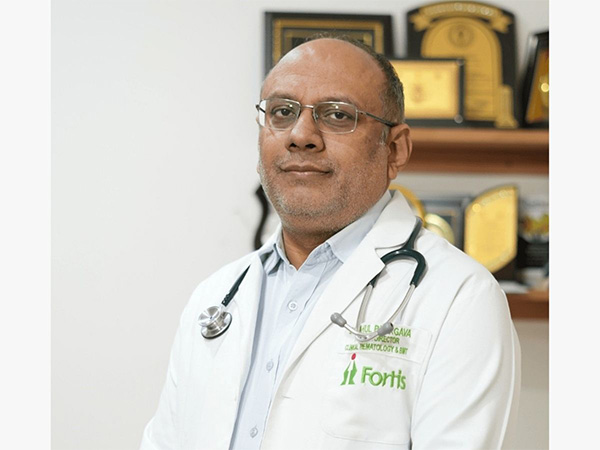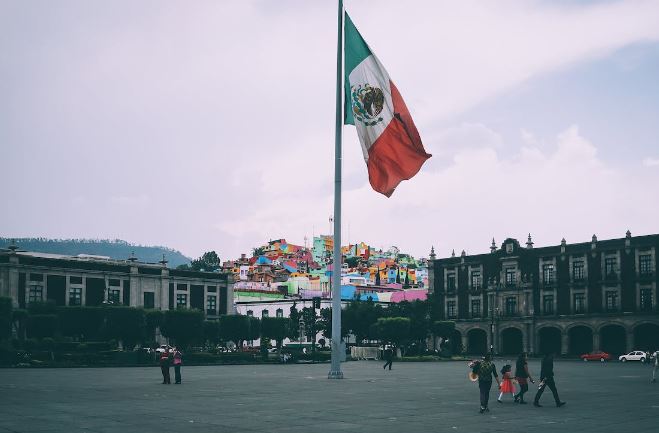Lighting the Path to 2047: How India's Health Revolution Can Lead the World
Jul 04, 2025
PNN
New Delhi [India], July 4: In the darkest hour of the pandemic, when the world was gripped with fear and confusion, a leader emerged not merely with policies and protocols but with symbolism that ignited unity. The call to light candles, bang thalis, and honour healthcare warriors was more than a gesture; it was a war cry against an invisible enemy. In those moments, India remembered that its greatest strength lies not just in its science, but in its spirit.
From crisis emerged resilience. Under Prime Minister Narendra Modi's stewardship, India did not just battle COVID-19; it conquered it with indigenous vaccines, mass-scale mobilisation, and a healthcare response that reached beyond borders, supplying over 282 million doses to more than 90 countries under Vaccine Maitri. What was once a dream, to be self-reliant in health, became a model for the world.
That momentum has since carried forward. Ayushman Bharat now offers health coverage to millions. Jan Aushadhi stores have made medicines more affordable. Medical colleges and AIIMS branches are expanding across states. The National Digital Health Mission is creating integrated, patient-centric systems.
Alongside infrastructure and insurance, India has increasingly focused on prevention. From the Anemia Mukt Bharat campaign to the TB Mukt Bharat mission, and most recently, the National Sickle Cell Elimination Mission, reflect a broader strategic vision: to address the health challenges that disproportionately affect underserved and tribal communities. These efforts, by design, are not hospital-centric, but they aim to reach the people before illness takes root. The true success of such programs lies not only in providing care to those affected but in preventing new births of children with avoidable genetic diseases. This is where preventive genetic screening becomes not a luxury, but a necessity.
India now stands at a pivotal juncture. As the nation looks ahead to Viksit Bharat 2047: the centenary of its independence, there is an opportunity to embrace the next great leap in public health: preventive medicine.
Technologies have made it possible to predict and prevent certain diseases before they manifest. Nowhere is this more urgent than in the case of hemoglobinopathies such as thalassemia and sickle cell disease. Every year, thousands of children are born in India with transfusion-dependent thalassemia--a condition that is entirely preventable through simple carrier screening of both parents. Yet awareness remains low, and testing is not systematically integrated into public programs.
In 2025, Dr. Rahul Bhargava launched the End Thalassemia Mission 2035--a national call to eliminate new thalassemia births through a mix of public education, accessible screening, and coordinated action across sectors. The scientific basis for this is well established. The implementation cost is modest. What is needed is public awareness, systemic prioritization, and amplification through credible channels of health communication. Communication, which is made effective by thought leaders, like our beloved, and all those in the extended leadership, a gesture or a Covid-like war cry at all public addresses, reflecting Mann ki Baat of a Viksit Bharat by 2047.
India has the opportunity to lead not just in healthcare delivery, but in building a culture where citizens are empowered with knowledge, where reproductive choices are informed, and where diseases are prevented before they begin. Such an approach reduces avoidable suffering, conserves national health expenditure, and improves long-term outcomes at scale.
As we move toward Viksit Bharat@2047, health must be seen not merely as a service, but as a shared destiny. Infrastructure matters. Innovation matters. But what will truly define the next era is how early we act, how clearly, we communicate, and how courageously we prevent.
A future where no child is born with an avoidable disorder like thalassemia is within reach. India has already shown that it can rise to the greatest health challenges of our time. The next chapter must be written not in emergency wards, but in classrooms, in homes, and in the everyday choices that define our collective wellbeing.
As we move towards affordable genetic screening, early detection of thalassemia carriers becomes not just possible--but a responsibility," said Dr. Srinidhi Nathany, Consultant, Molecular Diagnostics
Every leader must place preventive healthcare strategies at the core of their development and growth agendas. It is not just a matter of health policy--it is a foundational pillar for national progress. Dr. Rahul Bhargava sees this not merely as a public health goal, but as a national dream and destiny--one that can propel India to greater heights by ensuring that no child suffers from preventable genetic conditions, and that every citizen has the knowledge and access to take charge of their well-being.
(ADVERTORIAL DISCLAIMER: The above press release has been provided by PNN. ANI will not be responsible in any way for the content of the same)








